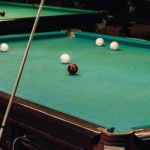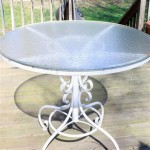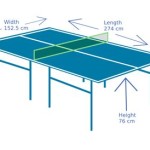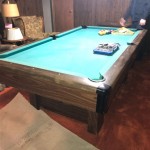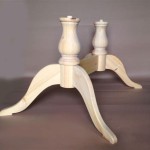An Essential Guide to Antique Dining Table Styles
Antique dining tables are a timeless addition to any home, offering a unique blend of beauty, functionality, and history. However, with so many different styles and designs to choose from, finding the perfect table can be a daunting task. This comprehensive guide will provide you with everything you need to know about antique dining table styles, empowering you to make an informed decision for your home.
Table Top Shapes
The shape of the table top plays a significant role in defining the overall style. Common shapes include:
- Rectangular: Classic and versatile, rectangular tables can comfortably accommodate large groups.
- Oval: Provides a more intimate dining experience, softening the edges of the room.
- Round: Perfect for smaller spaces, round tables create a convivial atmosphere.
- Square: Suitable for smaller groups, square tables offer a sense of symmetry and formality.
Pedestal and Leg Styles
The base of the table can significantly alter its aesthetic. Pedestal tables feature a central support column, while leg tables have four or more individual legs.
- Baluster Pedestal: A turned, vase-shaped column, common in Renaissance and Victorian styles.
- Cabriole Leg: A curved leg with a decorative knee, found in Queen Anne and Chippendale styles.
- Claw-and-Ball Foot: A dramatic leg with a carved lion's paw clutching a ball, characteristic of Empire style.
- Spider Leg: A slender, radiating leg that supports a round top, often seen in Victorian and Art Deco styles.
Materials and Finishes
The materials and finishes used in antique dining tables vary greatly, influencing both their durability and aesthetic appeal.
- Mahogany: A dense and durable hardwood with a reddish-brown hue, common in Victorian and Georgian styles.
- Oak: A strong and sturdy wood with a light to medium brown color, used in a variety of styles.
- Walnut: A dark and rich hardwood with a deep brown color, often seen in Art Deco and Mid-Century Modern styles.
- Pine: A softwood with a light color, used in rustic and country styles.
Historical Styles
Antique dining tables reflect the design aesthetics of different historical periods.
- Renaissance: Elaborate carvings and ornate details, such as baluster pedestals and acanthus leaf motifs.
- Baroque: Grand and lavish, featuring curved lines, gold leaf, and intricate scrollwork.
- Rococo: Light and elegant, characterized by asymmetrical curves, pastel colors, and floral motifs.
- Neoclassical: Inspired by Greek and Roman architecture, featuring clean lines, geometric shapes, and laurel wreaths.
- Victorian: Ornate and heavily decorated, with turned legs, carved details, and elaborate inlays.
- Art Deco: Geometric shapes, bold colors, and sleek lines, reflecting the modernism of the early 20th century.
Conclusion
Choosing an antique dining table is a journey of discovery and personal expression. By understanding the different styles, materials, and historical influences, you can select a table that not only complements your décor but also tells a unique story. Whether you seek a grand centerpiece for your dining room or a cozy gathering spot for family and friends, the world of antique dining tables offers an abundance of treasures to enhance your home.

English Antique Dining Tables And Chairs A Guide

A Guide To Antique Dining Tables

Guide To Tables Wood Table Design Dinning Room Dining Modern

English Antique Furniture Periods A Collector S Guide

A How To Guide Identifying Antique Tables And Table Legs

A Guide To Antique Furniture Leg Styles

Buyers Guide To Vintage Mid Century Dining Tables Pure Imagination

How To Choose A Dining Table Buyers Guide Akd Furniture

Victorian Dining Tables A Guide

French Louis Xvi Expandable And Versatile Walnut Dining Table Entry T The Art Of Antiquing


